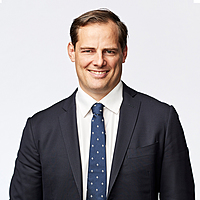How Big Data and AI are transforming funds management
Nowhere is the investment management evolution more evident than in the exponential increase in both data availability and computing power.
In 1990 there were less than 1000 financial indices. Today, there are over three million, tracking everything imaginable from the Goldman Sachs Hedge Fund VIP index (a basket of the most popular hedge fund positions), the Subdial 50 daily index of the fifty most traded luxury watches (as a measure of high-end demand), and the Garbage Gauge (a more precise and timely indicator of consumption).
Pre 1990 there were less than 500 corporate filings per day. Today there are over 5000 with a typical 10K (US annual report) running from 75,000 to 100,000 words. Crucial stock characteristics including volatility and beta can now be computed using high-resolution intraday tick data. Tick data is the highest resolution intraday data and is the sequence of each executed trade or bid/ask quote aggregated from multiple exchanges.
According to IBM, over 90% of available data was created in just the last two years.The proliferation of powerful new data sets has led some commentators to claim that “data is the new oil”.
Pre 1990 |
1990s -2000s |
Today |
|
Trade latency |
Minutes |
Seconds |
Milliseconds |
Number of U.S. corporate |
<500 |
<2500 |
>5000 |
Number of financial indices |
<1000 |
<10,000 |
> 3 million |
% of volume executed |
0 |
<5% |
>85% |
Commercial databases |
Machine readable, |
Machine readable, |
Unstructured, |
Distilling the data
At the same time there has been a seismic shift in the power and availability of computing. In 2000, the fastest computer in the world was the ASCI Red, operated by the US government at a cost of $55 million. Just six years later, Sony’s PlayStation 3 was delivering the same 1.8 teraflops of speed for just $500. At the time of writing, the fastest computer in the world is the Cray/HPE Frontier running at a leisurely 1,102,000 teraflops per second.
The simultaneous emergence of vast quantities of data and high powered computing has made the incredible advances in machine learning we now use every day possible.
If the data was available without the computing power, it would have taken years to train even a rudimentary machine learning algorithm. If the computing power was available without the data, there would have been nothing to train the models with. Indeed, the artificial neural network, arguably the first machine learning model was invented way back in 1958.
ChatGPT launched in November 2022 by Open AI, provides an exciting and also frightening example of what lies on the horizon. Here is an example of a question that we posed to it and the answer it provided. Academics are warning that ChatGPT has made the take home essay obsolete overnight.

It is Plato Investment Management’s house view that the winners in the fund management sphere over the coming decades will be those investors that can harness the vast quantity of information that is now available.
Whereas thirty years ago, the challenge was getting your hands on useful information, today the challenge is sorting the signal from the noise and making sense of the almost limitless data that is now available.
New tools for an ancient problem
A few examples spring to mind. Billions of rows of anonymised credit card spending data are now available (at a cost) and can enable investors to better forecast a corporate’s revenue numbers. Aggregated online search term data can be used to predict demand for a company’s latest product. Sophisticated forensic accounting tools can be deployed that take in every single accounting line item across every listed company globally to search for anomalous, potentially fraudulent patterns. Plato do exactly this using Benford’s law as an accounting Red Flag.
We also use Natural Language Processing (NLP) to derive the stock specific tone from around 25,000 earnings calls per year.
While the tools evolve, Plato’s bottom-up investment philosophy of searching for high quality companies selling for a discount to intrinsic value, with positive sentiment remains the same. The fundamentals of what makes a great investment remain intact – we simply look to bring 21st century technology to bear on that most ancient problem of risk and return.
Discover more about Plato Investment Management Global Long/Short equities strategies
Plato Investment Management (‘Plato’) is an investment management firm specialising in objective-based global and Australian equity investment solutions for wholesale and retail investors.
Visit the Plato website or keep up with the latest from the Plato team on LinkedIn.
1 topic

